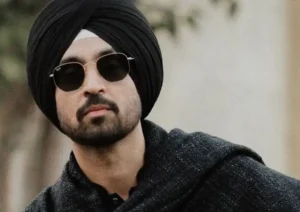1. Bollywood’s Unwavering Love for Pakistan:
Bollywood’s unwavering love for Pakistan in spite of ongoing hostilities and terrorist strikes. Known as a persistent “piece,” this affection keeps coming back, even after silence or prohibition. The cyclical nature of Bollywood’s ongoing cooperation with Pakistani talent in spite of political tensions by pointing out how actors from Pakistan are banned after attacks but then allowed to return.
2. The Pahalgam Attack’s Effect on Bollywood-Pakistan Relations:
Some studios cancelled their plans to collaborate with Pakistani actors in the wake of the recent terrorist attack in Pahalgam, and some Pakistani films were banned worldwide. There are some exceptions, though, like Diljit Dosanjh’s decision to use Pakistani actress Hania Amir in his next movie, Sardar Ji 3. Bollywood’s continued engagement with Pakistani artists reflects a complex interplay of emotion, politics, and business interests, even though the attack is still a fresh wound.
3. The Diljit Dosanjh and Sardar Ji 3 Controversy:
The decision by Diljit Dosanjh to collaborate with Hania Amir has generated controversy. Hania Amir freely admits that Pakistanis and Indians share cultural traits, but she emotionally separates herself because of political differences. Additionally, she attributes the violence in Kashmir to India rather than Pakistan’s military, which has long been charged with aiding terrorism. In his public remarks, Diljit highlights that the movie was shot prior to the assault and that he had no control over the circumstances.
4. Sardar Ji 3’s Character and Public Attitude:
Sardar Ji 3 is characterised as a straightforward ghost-hunter tale, similar to a Punjabi Ghostbusters, despite assertions that it is a groundbreaking movie. The controversy is out of proportion to the film’s true content and makes fun of the idea that it contains profound political or social messages.
6. The Balancing Act Between Fan Bases by Diljit Dosanjh:
Diljit is a well-known celebrity with a wide range of fans, including Khalistani supporters, Indian nationalists, and politically conscious fans abroad. In an effort to strike a balance between these factions, he subtly signals to Khalistani supporters overseas while openly expressing patriotism in India. His complicated stance is reflected in this duality, which may also help to explain his choices about the movie and Pakistani cooperation.
7. Reactions from Public Figures and Industry Peers:
Singer Mika Singh and other industry figures have publicly denounced Diljit for collaborating with a Pakistani actress, calling him phoney and careless. This critique highlights how contentious the matter is in the Indian entertainment industry, where viewpoints are widely divergent.
8. Individual Thoughts on Diljit Dosanjh’s Decisions and Their Wider Consequences:
No personal animosity towards him, recognising his contributions to fostering communal harmony between Sikhs and Hindus as well as his sincere love for Indian culture. However, expresses disappointment that Diljit did not oppose the film’s release more forcefully in the midst of the controversy, arguing that doing so might have won over the Indian public.
9. Conclusion and Request for Involvement of the Audience:
Whether the public thinks Diljit should have cancelled the movie or if it’s enough to release it abroad after it was banned in India. In light of the current sociopolitical environment, I invite readers to share their opinions on the complexities of accountability, art, and nationalism.

